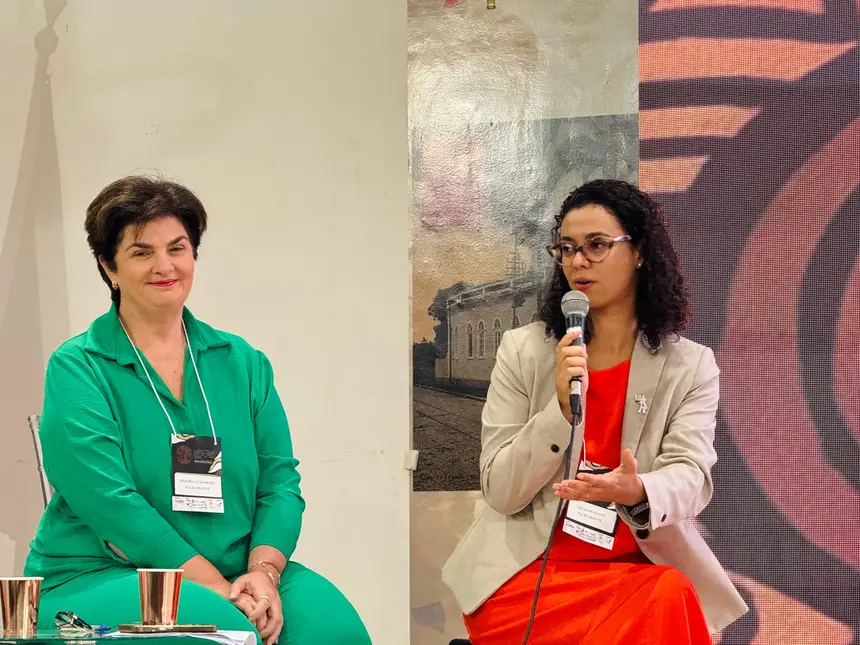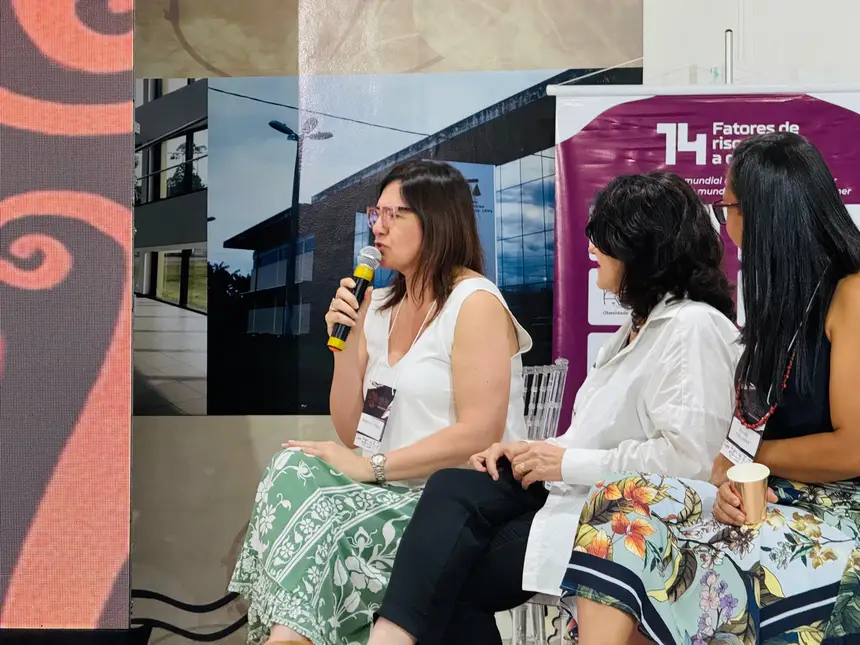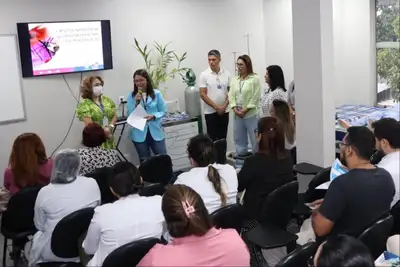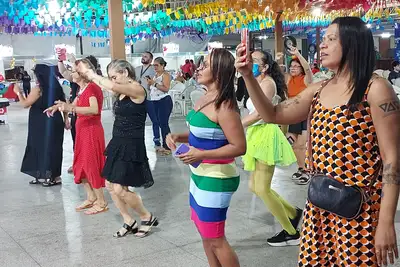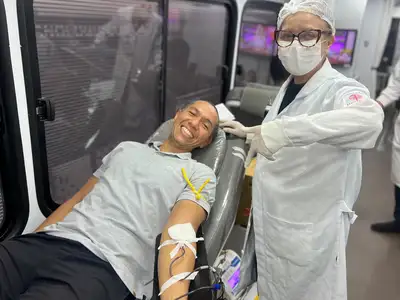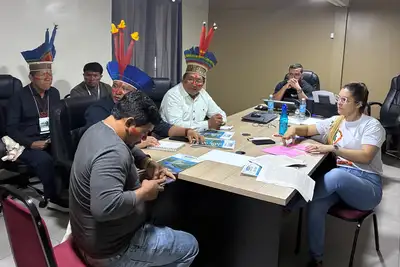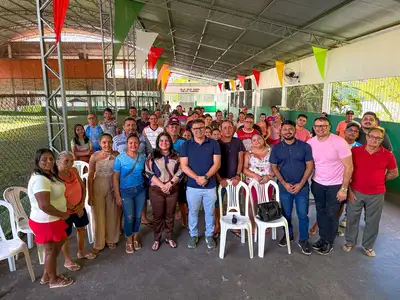Sespa participates in the I Seminar of the Brazilian Alzheimer Association in Pará, with health professionals and civil society
The event featured the active participation of leaders from the public and private sectors
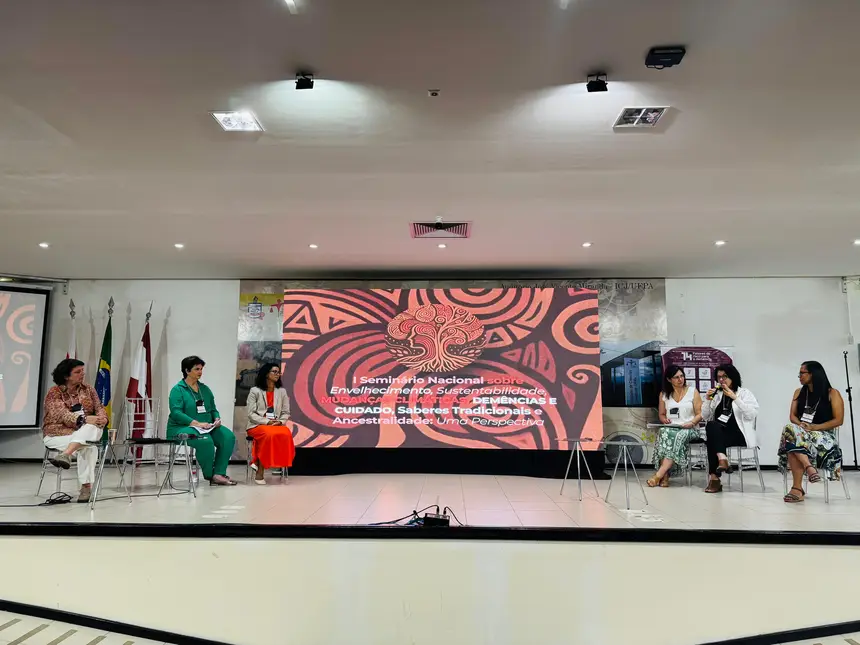
The State Health Department (Sespa) participates in the "I National Seminar on Aging, Sustainability, Climate Change, Dementias, Traditional Knowledge, and Ancestry: An Intergenerational Perspective," held on September 11 and 12 in Belém. The event is an initiative of the Brazilian Alzheimer Association (ABRAz), in partnership with the Ministry of Health, the government of Pará, among other entities. It brings together health professionals, researchers, public managers, and representatives of traditional communities.
Under the central theme "The Amazon as a meeting point between tradition, science, and intergenerational care," the seminar opened a space for dialogue and collective construction. The Deputy Secretary of Health of Pará, Heloisa Guimarães, during the round table on "Actions and Strategies for Elderly Health aimed at the United Nations Conference on Climate Change in 2025," highlighted the importance of health care for traditional peoples who protect and care for the forest. "Quilombolas, riverside dwellers, and indigenous peoples are on the front lines in caring for our forests and rivers. Developing health strategies that meet their uniqueness is key to improving the quality of health care for traditional peoples," emphasized the secretary.
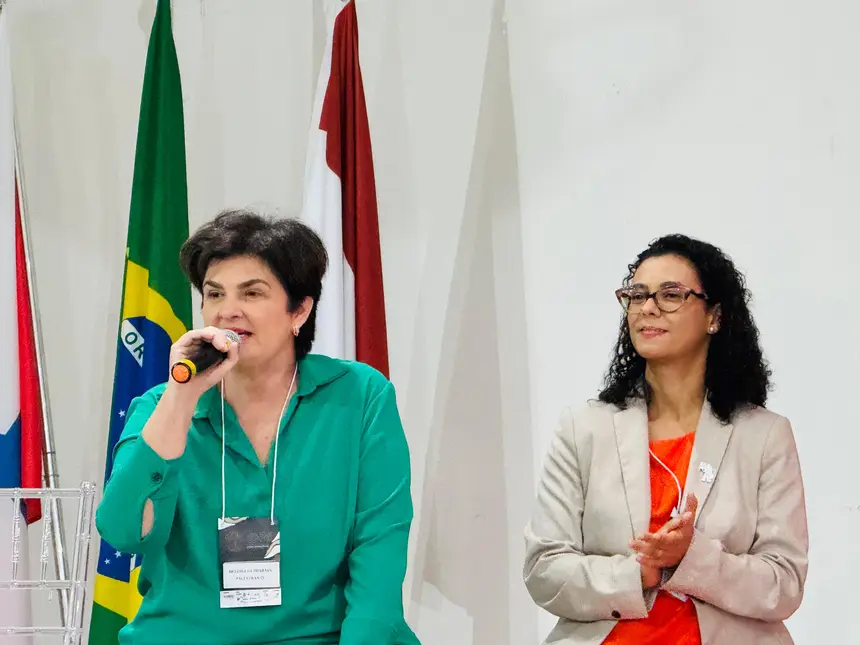
The president of the Brazilian Alzheimer Association (ABRAz), Celene Pinheiro, emphasized the importance of knowledge exchange during the event. "It was essential for the ABRAz event to come here to the State of Pará. It is very important that we have events distributed throughout the national territory, that they move away from the south-southeast axis, and that we can bring the knowledge we have from the south-southeast region, but also learn here, with this diversity. It is very gratifying to be here and bring ABRAz, extending its arms to the North region and being embraced as well," said the president.
During the panel on Elderly Health Care, coordinator Ligia Gualberto, a representative of the Ministry of Health, noted that "it is important to highlight this audience, to commit and dedicate specific public policy actions that meet the needs of these people, especially the vulnerable population, as is necessary in this dialogue with all other integrated policies, of assistance, of health."
The union of themes brought a broad perspective and important leaders who contributed to the richness of knowledge exchange. "I think this is the first time we have a discussion that encompasses these themes, ancestry, climate change, and Alzheimer’s. We do not remember seeing a similar discussion before in any other event around the world. Since the pandemic, we have learned about the impact our environment has on memory and how it can be a risk factor for accelerating the development of dementias. So, I think it is a combination of very interested people who really need to study a lot about this so that we can somehow help these people," concluded Berenice Werle, Vice President of the Brazilian Society of Geriatrics and Gerontology (SBGG).
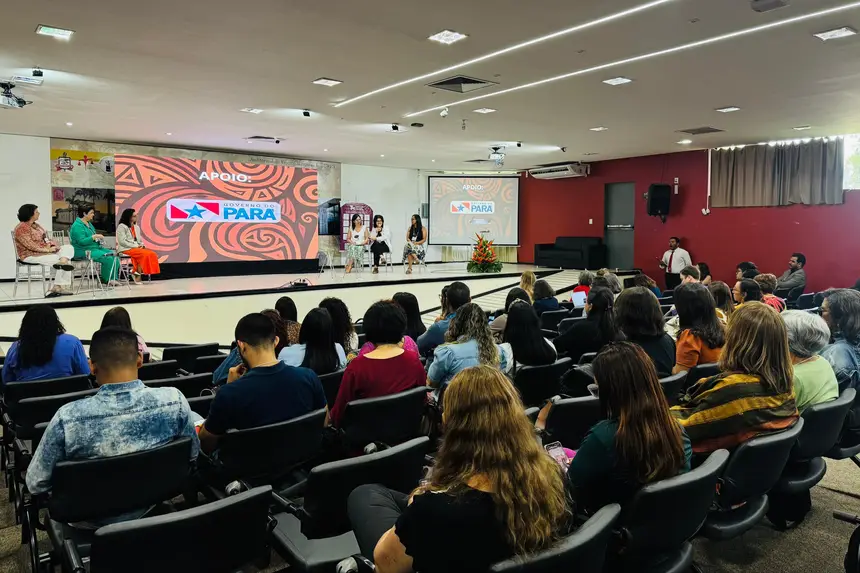
The event features the active participation of leaders from the public and private sectors, focusing on the development of strategies that encompass traditional peoples, the elderly population, and people in vulnerable situations, especially regarding climate change issues. The exchange of experiences reaffirms the commitment to access and quality health care, also strengthening public health policies in the State.
Text: Mariela Oliveira/ Ascom Sespa



